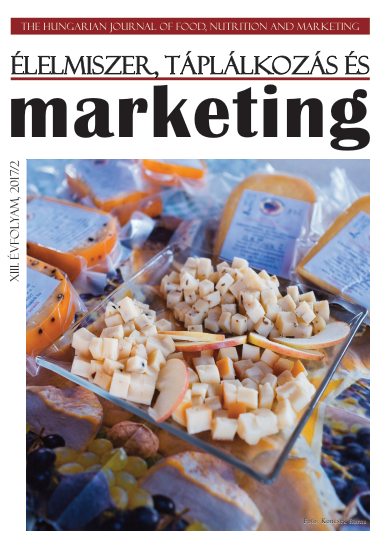A hússal szembeni attitűd a MAQ-skála alapján
DOI:
https://doi.org/10.33567/etm.2289Kulcsszavak:
húsfogyasztás, attitűd, MAQ-skála, affinitás, függőség, hedonizmusAbsztrakt
It has been proved that meat is an important source of nutrition in economically developed countries. relying on current customer trends plant based diets are very popular or diets with minimal meat consumption independently of the possible negative effects on health. Hungarian people are basically omnivores and meat is an important source of nutrition. The aim of this study is to explore the attitude towards meat consumption based on MAQ (Meat Attachment Questionnaire). An online empirical research with a sample of 1053 respondents (50.5% females and 49.5% males) was conducted in April 2017. factor analysis was conducted to test the adaptation possibilities of MAQ scale. relying on the results, it is partly possible in Hungary. four factors were identified: dependent hedonism, affinity, hedonic dependency and entitlement. The original factor structure was identified in case of affinity and entitlement. e connection between the attitude towards meat (entitlement, affinity, dependency, hedonism) and demographics (gender, location, age, employment, marital status) and other traits (frequency of consumption and BMI index) was analysed with the analysis of variance. Health and health management are important topics both at macro- and microeconomic levels. Making white meat (fish and poultry) more popular and increasing the consumption of white meat is necessary with a marketing communication campaign. Emphasizing affinity can be a good way of differentiation when ethical questions are in focus.



